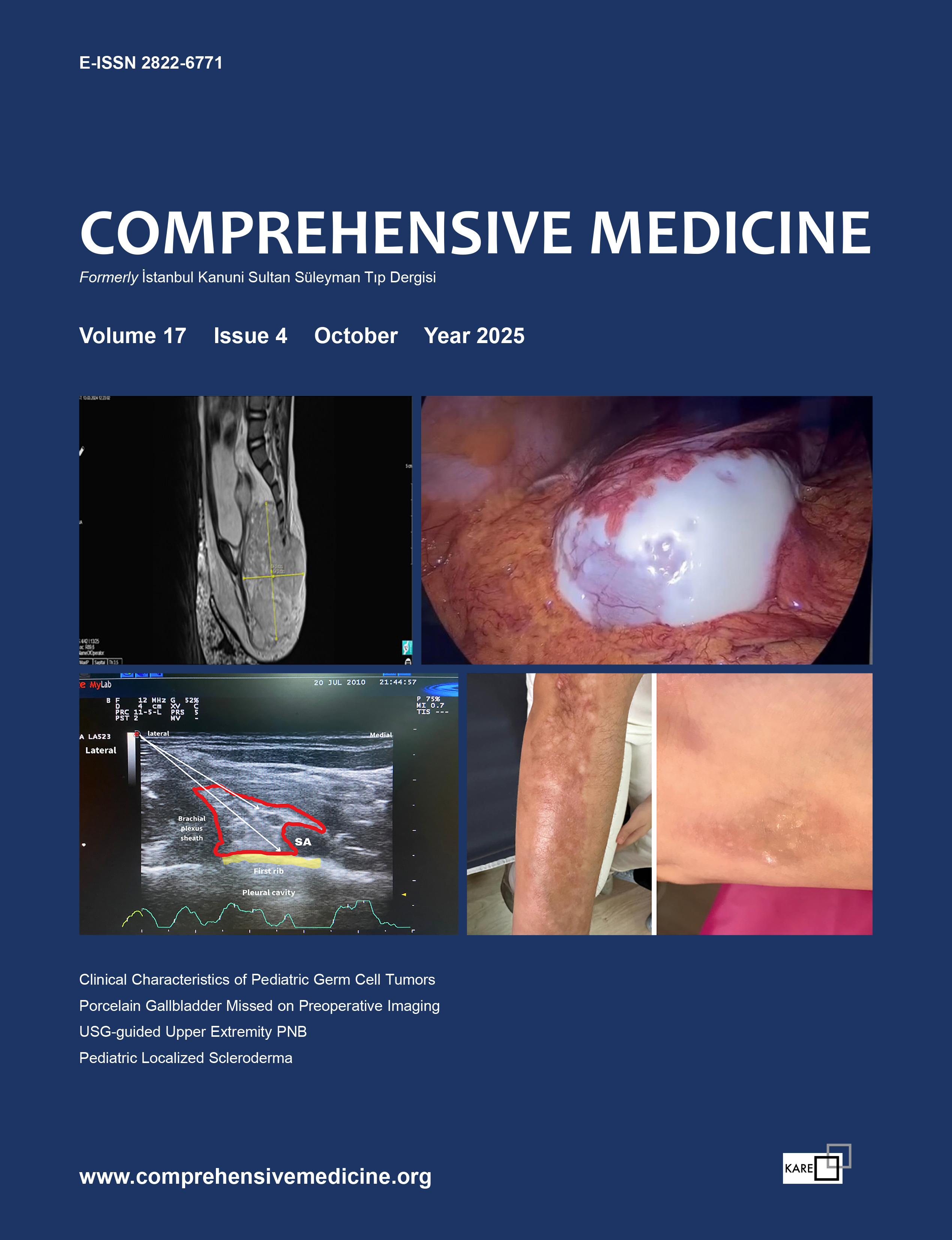Early ECG Patterns in Acute Cerebrovascular Events: A Prospective Study Correlating Clinical Findings with Mortality and Medico-Legal Considerations
Shailendra Kumar Pandey1, Rajiv Ratan Singh1, Sachin Kumar Tripathi2, Pradeep Kumar Yadav31Department of Emergency Medicine, Dr. Ram Manohar Lohia Institute of Medical Sciences, Lucknow, India2Department of Forensic Medicine and Toxicology, King George’s Medical University, Lucknow, India
3Department of Forensic Medicine and Toxicology, Dr. Ram Manohar Lohia Institute of Medical Sciences, Lucknow, India
INTRODUCTION: Acute cerebrovascular events (CVE), such as strokes, often manifest with early electrocardiographic (ECG) changes. These ECG patterns can provide crucial insights into the patient's prognosis and are essential in medico-legal cases. Understanding the correlation between these early patterns and patient outcomes, especially mortality, is vital for improving care and providing forensic clarity. To assess early ECG changes in patients with acute cerebrovascular events, correlating clinical findings with mortality, and exploring their medico-legal implications.
METHODS: This hospital-based prospective study involved 100 patients admitted with acute stroke to the Medical Intensive Care Unit and Medicine Department at a tertiary care center from 2020 to 2021. Participants were selected through simple random sampling, ensuring equal inclusion chances. Data were collected within 24 hours of admission, including ECGs, clinical histories, and demographic details, and analyzed using SPSS.
RESULTS: The study highlighted critical medico-legal implications, finding that 78% of 100 patients with acute cerebrovascular events exhibited ECG changes. Notably, 89% of hemorrhagic stroke patients showed abnormalities. Statistical analysis revealed significant correlations between early ECG findings and clinical se-verity, with a Chi-square value of ᵪ² = 13.14 (p=0.001396). At the same time, mortality differences based on ECG status were not statistically significant (p=0.079).
DISCUSSION AND CONCLUSION: This study emphasizes the importance of early ECG abnormalities in acute cerebrovascular events, linking them to clinical severity and mortality. Findings suggest a higher mortality rate in patients with abnormal ECGs, but further research is necessary to strengthen these associations and improve care. Medico-legal aspects involve the timely interpretation of ECGs, ensuring informed consent, accurate record-keeping, and maintaining accountability to prevent negligence and malpractice.
Keywords: Acute cerebrovascular accident, electrocardiogram (ECG) changes, mortality, medico-legal considerations, prognostic ındicators, stroke outcomes
Early ECG Patterns in Acute Cerebrovascular Events: A Prospective Study Correlating Clinical Findings with Mortality and Medico-Legal Considerations
Shailendra Kumar Pandey1, Rajiv Ratan Singh1, Sachin Kumar Tripathi2, Pradeep Kumar Yadav31Department of Emergency Medicine, Dr. Ram Manohar Lohia Institute of Medical Sciences, Lucknow, India2Department of Forensic Medicine and Toxicology, King George’s Medical University, Lucknow, India
3Department of Forensic Medicine and Toxicology, Dr. Ram Manohar Lohia Institute of Medical Sciences, Lucknow, India
GİRİŞ ve AMAÇ: Acute cerebrovascular events (CVE), such as strokes, often manifest with early electrocardiographic (ECG) changes. These ECG patterns can provide crucial insights into the patient's prognosis and are essential in medico-legal cases. Understanding the correlation between these early patterns and patient outcomes, especially mortality, is vital for improving care and providing forensic clarity. To assess early ECG changes in patients with acute cerebrovascular events, correlating clinical findings with mortality, and exploring their medico-legal implications.
YÖNTEM ve GEREÇLER: This hospital-based prospective study involved 100 patients admitted with acute stroke to the Medical Intensive Care Unit and Medicine Department at a tertiary care center from 2020 to 2021. Participants were selected through simple random sampling, ensuring equal inclusion chances. Data were collected within 24 hours of admission, including ECGs, clinical histories, and demographic details, and analyzed using SPSS.
BULGULAR: The study highlighted critical medico-legal implications, finding that 78% of 100 patients with acute cerebrovascular events exhibited ECG changes. Notably, 89% of hemorrhagic stroke patients showed abnormalities. Statistical analysis revealed significant correlations between early ECG findings and clinical se-verity, with a Chi-square value of ᵪ² = 13.14 (p=0.001396). At the same time, mortality differences based on ECG status were not statistically significant (p=0.079).
TARTIŞMA ve SONUÇ: This study emphasizes the importance of early ECG abnormalities in acute cerebrovascular events, linking them to clinical severity and mortality. Findings suggest a higher mortality rate in patients with abnormal ECGs, but further research is necessary to strengthen these associations and improve care. Medico-legal aspects involve the timely interpretation of ECGs, ensuring informed consent, accurate record-keeping, and maintaining accountability to prevent negligence and malpractice.
Anahtar Kelimeler: Acute cerebrovascular accident, electrocardiogram (ECG) changes, mortality, medico-legal considerations, prognostic ındicators, stroke outcomes
Manuscript Language: English






















